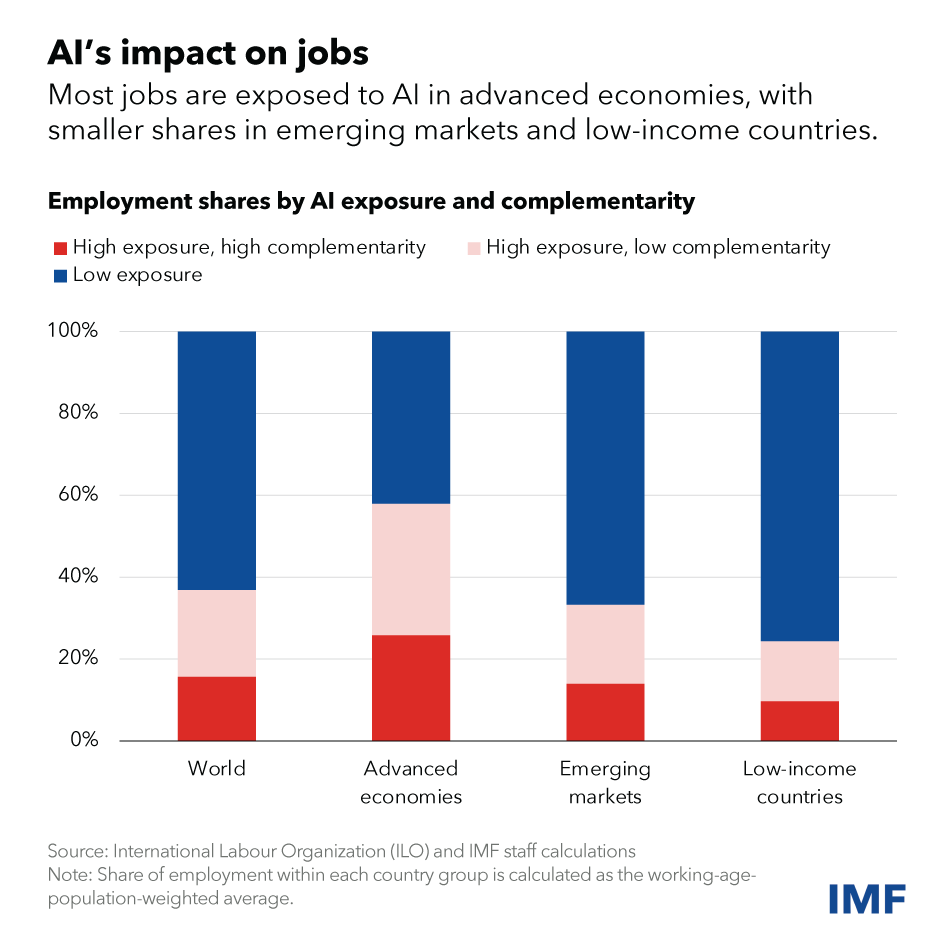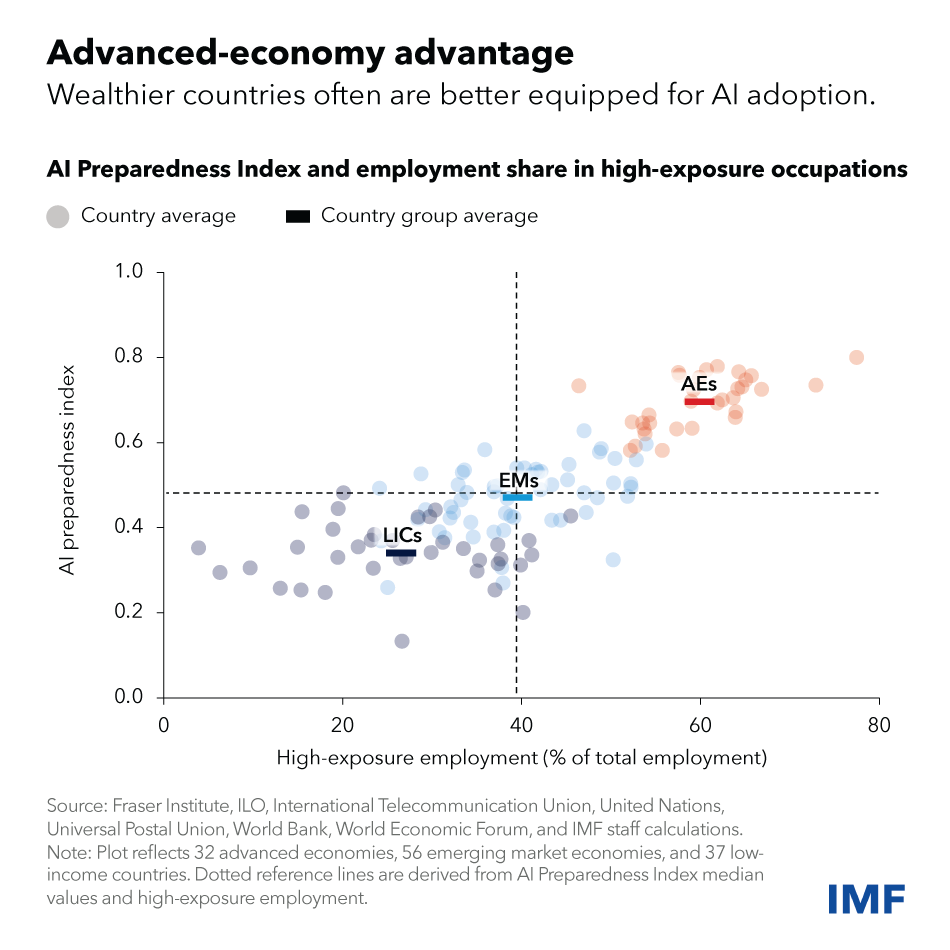|
Getting your Trinity Audio player ready...
|
We stand at the cusp of a technological revolution, where artificial intelligence (AI) holds the potential to catapult productivity, drive global growth, and elevate incomes globally. However, this transformative force also carries the shadow of job displacement and deepening inequality.
The swift progress of AI has stirred both enthusiasm and concern, prompting critical questions about its impact on the world economy. Predicting its net effect is challenging, as AI will intricately weave through economies. What’s clear is the imperative need for a set of policies to harness the vast potential of AI responsibly and for the benefit of humanity.
Reshaping the Nature of Work
In a recent analysis, IMF staff delved into the potential impact of AI on the global labor market, acknowledging that AI could both replace and complement jobs. The findings are intriguing: almost 40 percent of global employment is exposed to AI.
AI has historically affected routine tasks, but its distinctive feature lies in impacting high-skilled jobs. Advanced economies face greater risks but also more opportunities compared to emerging markets and developing economies.

In advanced economies, approximately 60 percent of jobs may be impacted by AI. About half of these jobs could benefit from AI integration, boosting productivity. However, the other half might see key tasks performed by humans replaced, leading to reduced hiring and lower wages.
In contrast, emerging markets and low-income countries face 40 percent and 26 percent exposure to AI, respectively. While these countries may experience fewer immediate disruptions, the lack of infrastructure and skilled workforces could lead to long-term challenges, potentially worsening global inequality.
Navigating Inequality
AI’s impact isn’t limited to national levels; it can exacerbate income and wealth inequality within countries. Workers adept at using AI might see increased productivity and wages, while others struggle to adapt, creating polarization within income brackets.
If AI predominantly complements higher-income workers, it may disproportionately increase their labor income, further deepening inequality. Policymakers must address this issue proactively to prevent AI from intensifying social tensions.
The IMF suggests establishing comprehensive social safety nets and retraining programs for vulnerable workers. This approach aims to make the AI transition more inclusive, protecting livelihoods and curbing inequality.
Crafting Inclusive Policies
Recognizing the urgent need for effective policies, the IMF has introduced the AI Preparedness Index. This index gauges readiness in digital infrastructure, human capital, labor-market policies, innovation, economic integration, regulation, and ethics.
Wealthier economies, especially advanced and some emerging markets, tend to be better prepared for AI adoption. Countries like Singapore, the United States, and Denmark lead the index, showcasing robust results across all evaluated categories.

Guided by insights from the AI Preparedness Index, advanced economies should prioritize AI innovation and integration while developing comprehensive regulatory frameworks to ensure safety and responsibility. For emerging markets and developing economies, the emphasis should be on building a solid foundation through investments in digital infrastructure and a digitally competent workforce.
The AI era is here, and our choices today will determine whether it bring prosperity for all or widen existing divides. Through strategic and inclusive policies, we can steer this technological revolution towards a better future for humanity.



